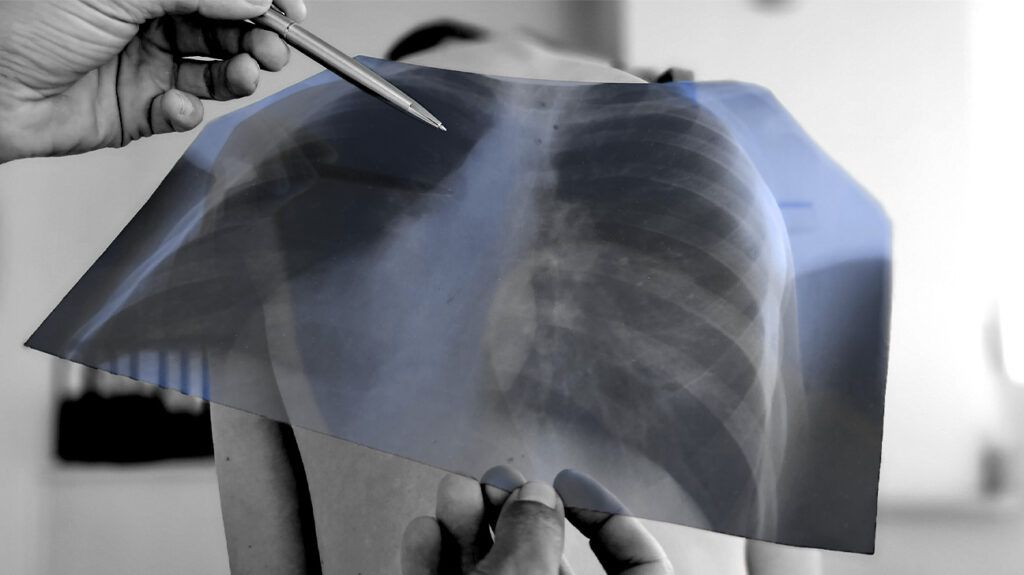Because cystic fibrosis affects multiple organ systems, including the lungs and digestive system, people with the condition often need care from a team of healthcare professionals.
Cystic fibrosis is a genetic condition that causes mucus in the body to become thick and sticky.
The mucus throughout the body is typically slippery and acts as a protective barrier in the lungs and digestive system. However, the thickened mucous from cystic fibrosis can create blockages or increase the risk of infection.
Read on to learn about the types of healthcare professionals who may be part of a cystic fibrosis healthcare team.

Cystic fibrosis specialists have undergone advanced training in diagnosing and treating cystic fibrosis.
They are typically pulmonologists, which are lung specialists who can provide comprehensive care for people with cystic fibrosis.
It is their job to stay up to date on the latest cystic fibrosis treatment guidelines and new medications and therapies.
They often work in specialized cystic fibrosis centers and collaborate with other healthcare professionals to offer a team-based approach to care.
Pulmonologists are medical doctors who specialize in diagnosing and treating lung diseases.
After completing their internist degree and medicine residency, they spend several years focusing on pulmonology. To become a board certified pulmonologist, they must pass specialty exams.
Because cystic fibrosis primarily affects the lungs, the pulmonologist plays a crucial role in caring for people with the condition.
They help manage respiratory symptoms and provide treatments to improve lung function.
Otolaryngologists, also known as ear, nose, and throat doctors (ENTs), are an important part of the cystic fibrosis healthcare team.
These doctors help manage the increased risk of sinus and ear complications due to the thick mucus secretions that often block the sinuses and ears.
Gastroenterologists are doctors who specialize in the digestive system and play a vital role in managing cystic fibrosis care.
The pancreas and intestines
The gastroenterologist can help manage these digestive concerns and recommend dietary modifications and medications to improve digestive health.
Endocrinologists are doctors who specialize in treating hormonal disorders.
People with cystic fibrosis are at
Endocrinologists can help manage blood sugar levels and address other hormone imbalances in those with cystic fibrosis.
Transplant surgeons are an essential part of the cystic fibrosis healthcare team when a person with the condition requires a lung transplant.
As the condition progresses, lung damage
Transplant surgeons evaluate people with cystic fibrosis for eligibility, perform the surgery, and provide post-transplant care.
While not everyone with cystic fibrosis needs a lung transplant, those who do can benefit significantly from the expertise of a transplant surgeon.
A range of other healthcare professionals can also contribute to the care of a person with cystic fibrosis.
- Cystic fibrosis nurses: They provide specialized care and education to individuals and their families and act as a central point of contact and coordination among different specialties.
- Respiratory therapists: They focus on improving lung function through airway clearance techniques, breathing exercises, and oxygen therapy.
- Registered dietitians: They specialize in developing personalized nutrition plans to address digestive issues and improve nutrient absorption.
- Physical therapists: They help maintain physical activity levels, improve strength, and manage any problems with muscles and bones.
- Social workers: They provide emotional support, connect individuals with resources, and help navigate the complexities of living with a chronic illness.
- Pharmacists: They dispense medications, monitor for drug interactions, and provide education on proper medication use.
- Genetic counselors: They offer guidance on genetic testing, family planning, and understanding how cystic fibrosis passes through genetics.
- Psychologists: They address the emotional and mental health needs of individuals with cystic fibrosis and their families.
- Cystic fibrosis research coordinators: They connect people with clinical trials and research studies that may benefit their cystic fibrosis and help advance treatments.
- Fertility specialists: They address reproductive health concerns and assist people with cystic fibrosis who desire to start a family.
- Palliative care specialists: They focus on improving the quality of life and providing comfort to those with advanced cystic fibrosis.
Individuals with cystic fibrosis can consult a primary care physician for specialist referrals.
The Cystic Fibrosis Foundation also offers a directory of accredited cystic fibrosis care centers. These facilities provide comprehensive, multidisciplinary care.
An individual can also contact their health insurance provider for a list of specialists who accept their insurance.
How do doctors test for cystic fibrosis?
Genetic testing and sweat testing are
Early diagnosis and treatment help reduce the risk of severe complications and improve survival.
When should I call the doctor for cystic fibrosis?
If a child is experiencing
Early diagnosis and treatment help manage cystic fibrosis effectively.
Various healthcare professionals play an important role in treating cystic fibrosis.
Cystic fibrosis specialists provide expert diagnosis and treatment, and it is essential to have a multidisciplinary team. These individuals include pulmonologists, who manage lung health, and gastroenterologists, who address digestive complications.
Other team members may include otolaryngologists, endocrinologists, transplant surgeons, and healthcare professionals with expertise in other specialties.
A primary care provider or the Cystic Fibrosis Foundation can help individuals with cystic fibrosis find specialists.
